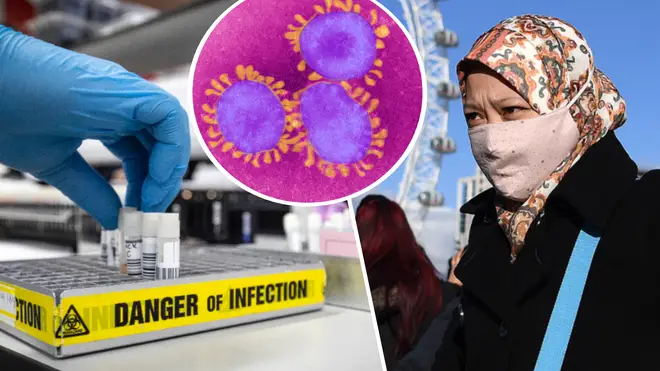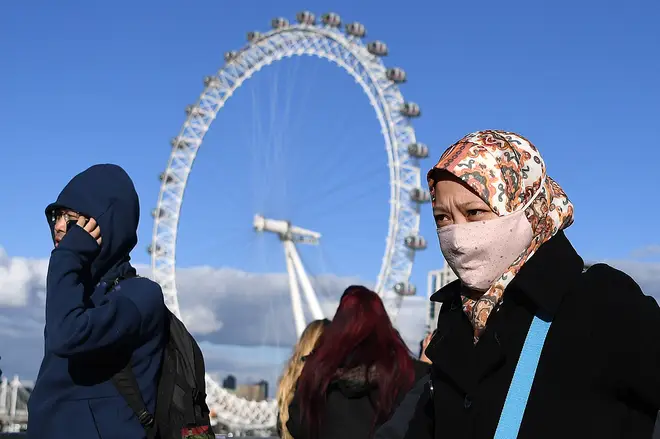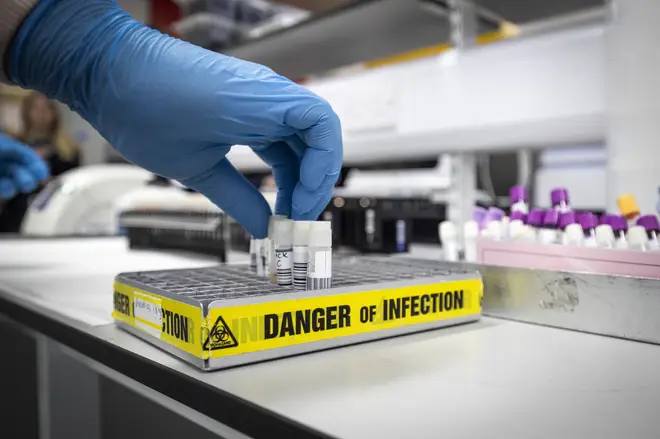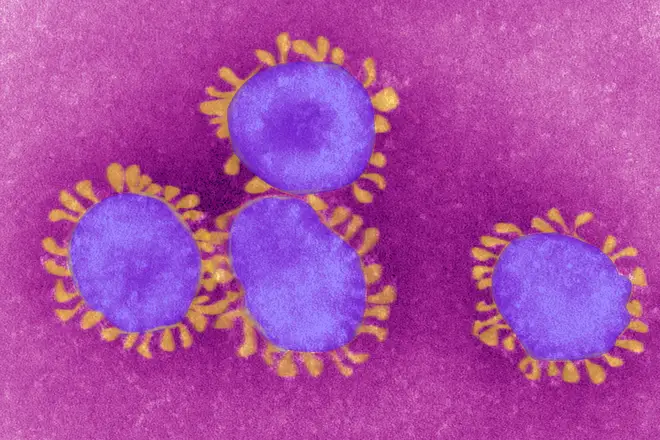Coronavirus facts and myths: What you really need to know about the outbreak
5 March 2020, 15:37

Wondering if face masks actually work, or whether you need to stay inside and self-isolate? Here are the facts on COVID-19.
Coronavirus has mutated into a more aggressive disease, scientists have claimed.
Not only has a new strain been discovered, but the UK now has almost 100 cases of COVID-19 confirmed.
As the death toll rises globally and rumours circulate online, we bust the common myths behind the killer bug and reveal the facts you need to know.
Read more: Coronavirus UK map: Where in Britain are the confirmed COVID-19 cases?

Myth: You should wear a face mask in public
You might have spotted people wearing paper face masks in a bid to protect themselves from coronavirus, but do they actually protect against the virus? According to the BBC, they're not very effective at all.
"They may give a false sense of security," admits health correspondent Fergus Walsh. "Leave them to the medical staff because they need to be changed frequently. They are quite good at preventing someone with an infection passing it on, but those people should be staying at home."
Some research says masks are effective at catching droplets, which is one of the main ways in which coronavirus is spread, but these are only being recommended to carers and patients with the virus. Face masks will make little difference if you're just wearing them walking along the street.

Myth: You should wear gloves to protect yourself
"Gloves might help, unless you touch your face then you'll be passing on a whole load of germs," explains Fergus. Instead, avoid shaking hands or kissing on the cheek altogether if you're interacting socially.
Myth: You can't tell the difference between a cold and coronavirus
Professor Sian Griffiths from the Chinese University of Hong Kong told the BBC that the best way to differentiate between a common cold and COVID-19 is to have the test that screens specifically for it. She also suggested that you keep an eye on your breathing. "If symptoms go on to develop into chest disease, then you're more likely to have coronavirus," she revealed.
Read more: Loose Women outraged by prospect of 'over 60s Coronavirus curfew'

Myth: It only kills people over 60, or those with weak immune systems
Research has shown that if you're young, fit and healthy, you probably won't become critically ill from COVID-19. However, the virus can still cause complications to the respiratory system. The advice is that if you follow health instructions – quarantine yourself and report your symptoms. That way, you will help lessen the spread of the bug, and therefore protect more vulnerable people in society.
The current fatality rate is estimated at a roughly 1%, and has since been proven to be fairly accurate. The percentage makes coronavirus around 10 times more deadly than seasonal flu, which on averages kills between 290,000 and 650,000 people a year globally.
Myth: A vaccine is going to be available within a few months
Scientists are currently working on a vaccine for COVID-19, conducting trials and studies to work out how medicine can protect against the virus. However it's a fairly lengthly process to produce, test and launch a vaccine for the masses, so experts are predicting it will take around a year, if not longer.
Read more: Coronavirus scare at Prince George and Princess Charlotte's school as pupils are isolated
What are the symptoms of coronavirus?
A sniffle isn't a strong indication that you might have coronavirus, the signs are more complex than that. So what are they? "The most common symptoms are fever, shortness of breath, a cough and a runny nose," explains Professor Griffiths.
What should I do if I think I have coronavirus?
The NHS has an online coronavirus service if you think you have contracted the disease. Just head to 111.nhs.uk/covid-19 to submit your symptoms, or call 111.
Health advisors say you should self-isolate and avoid GP surgeries, pharmacies and hospitals during this time. This means staying home from work, avoiding public places including transport services, and steering clear from other people, even friends and family.

































